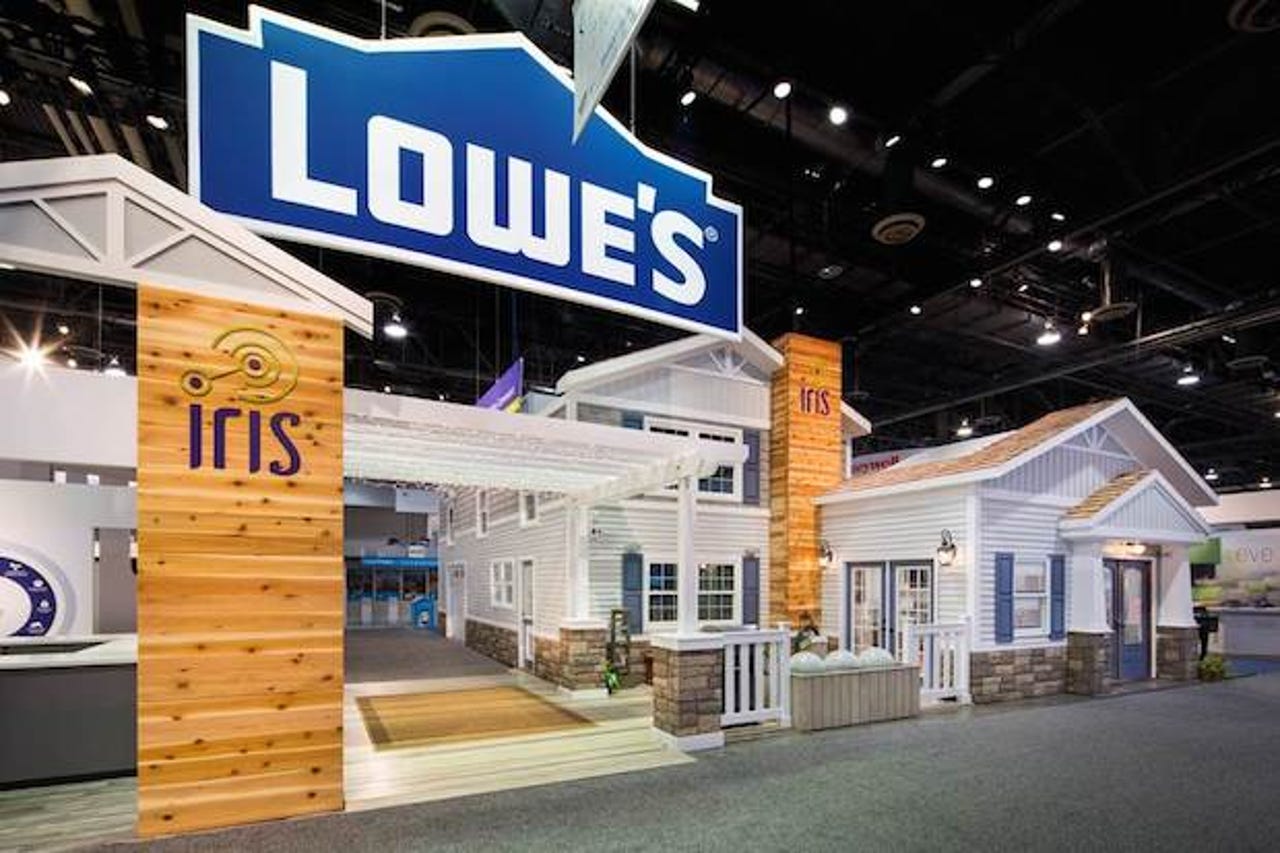Lowe's at CES 2015: Smart homes are about lifestyles, demystifying home automation


LAS VEGAS---If there is one takeaway trend-to-watch from the 2015 Consumer Electronics Show wrapping up, it is that we are moving toward a connected world and there is really no way around that.
This movement starts where the heart is: the home. (If your mind went to healthcare first, you wouldn't be wrong on that either.)
For home improvement retail giant Lowe's, the smart home is the kickoff point for its 2015 season.
More CES 2016
I had a chance to sit down with Anne Seymour and Jason Rogers, directors on Lowe's Iris Smart Home platform team, at the Sands Expo Hall, hosting primarily the connected home, healthcare, and general wearables overflow from the nearby Las Vegas Convention Center.
Seymour and Rogers shared insights into how smart home automation starts with education consumers and demystifying home automation.
Here are a few highlights from our discussion, edited and condensed for clarity.
ZDNet: The connected home is a hot topic at CES this year, with a lot of tech giants not normally synonymous with home improvement trying to move into this space. As an established brand in this field, how does Lowe's view the Internet-of-Things bonanza?
Seymour: It's a really exciting space. Lowe's has been helping home owners for more than 70 years. We see everything in the home being connected over time. We want to make sure consumers connect devices in ways they want to. As a home improvement retailer, we're offering the fullest breadth of connected devices as possible.
ZDNet: Are there particular facets of home improvement poised for an upgrade thanks to the Internet-of-Things? What are some of the pain points and opportunities for innovation?
Rogers: The normal functions of the house that are being improved with smart technology, like the water shut-off valve. Shutting a leak off like that didn't exist before. It's about taking traditional items and making them smart. We have technology partners and experts internally that can help find out what home owners want.
Seymour: There's the really well known brands -- the GEs, Honeywells and the Whirlpools - all entering the space. Customers know we offer those products. We think the opportunity is with the consumer.
ZDNet: How does Lowe's see the home improvement and automation vertical shifting in 2015 or even the next five years? What kind of changes in business models could we expect?
Seymour: I think from our perspective, because everything can be connected in the future, the pace depends on consumer adoption. It's about education of the consumer and taking the technology out of it from their perspective. It's not about worrying what the technology background is. They should care that it is an easy experience for them.
Rogers: It's about home automation and creating an experience that is customizable about what they want to do for themselves.
ZDNet: Lowe's is a big purveyor of the Do-It-Yourself (DIY) lifestyle, with DIY smart home monitor Iris serving as a prime example. App development and programming is arguably another form of DIY, just on a different technical level. Other Lowe's execs have spoken in the past about the need for more open APIs and fewer wireless standards. How does this strategy help developers and tech companies better plan and build for connected homes?
Rogers: Users don't want a thousand apps on their phones. They want things to work together. There is value in the products working together as a service. Of all these folks making awesome products, we're able to connect them for the consumers. They'll get frustrated if they have to manage 15 of them 15 different ways. That's why we want to remain open.
I call it freedom of trust, creating trust in the consumer so they know it will work and move around to different services. Everyone realizes this need, and there are a lot of emerging standards trying to cover it. Right now, everyone is chasing different technologies.
Seymour: The real intent of Iris is making sure we know what those industry standards are so it's open. The consumer can choose, and we can support whatever they're looking for. It's making home improvement simple for the consumer. Iris is very much a DIY solution because it doesn't need wires. The siren doesn't have to be wired in. Consumers can move it with them if they rent, or if they're in an older home and can't wire because of the age of the home, they can still have that aspirational view of the home without spending thousands and thousands of dollars.
ZDNet: Smart homes promise the potential of easing workloads and providing new insights thanks to a wealth of new data. But being that this data is being generated in our most private spaces - our homes - that information could be highly sensitive and vulnerable. Lowe's isn't in the business of tech security, so what is Lowe's approach here?
Seymour: If you think of Lowe's, we're in technology because we have customers that come in every day. We use the same security protocols that banks do.
Rogers: It's the customer's data. We take that very seriously. We follow all the industry's best practices. We have customer information all across Lowe's. I've been around Google, Motorola, etc. The standards we have are very well defined.
There's a bunch of data in the house. Some of the data does flow to the platform, and we'll send messages to consumers when alarms go off. All of that data falls within those security practices.
Image via Lowe's